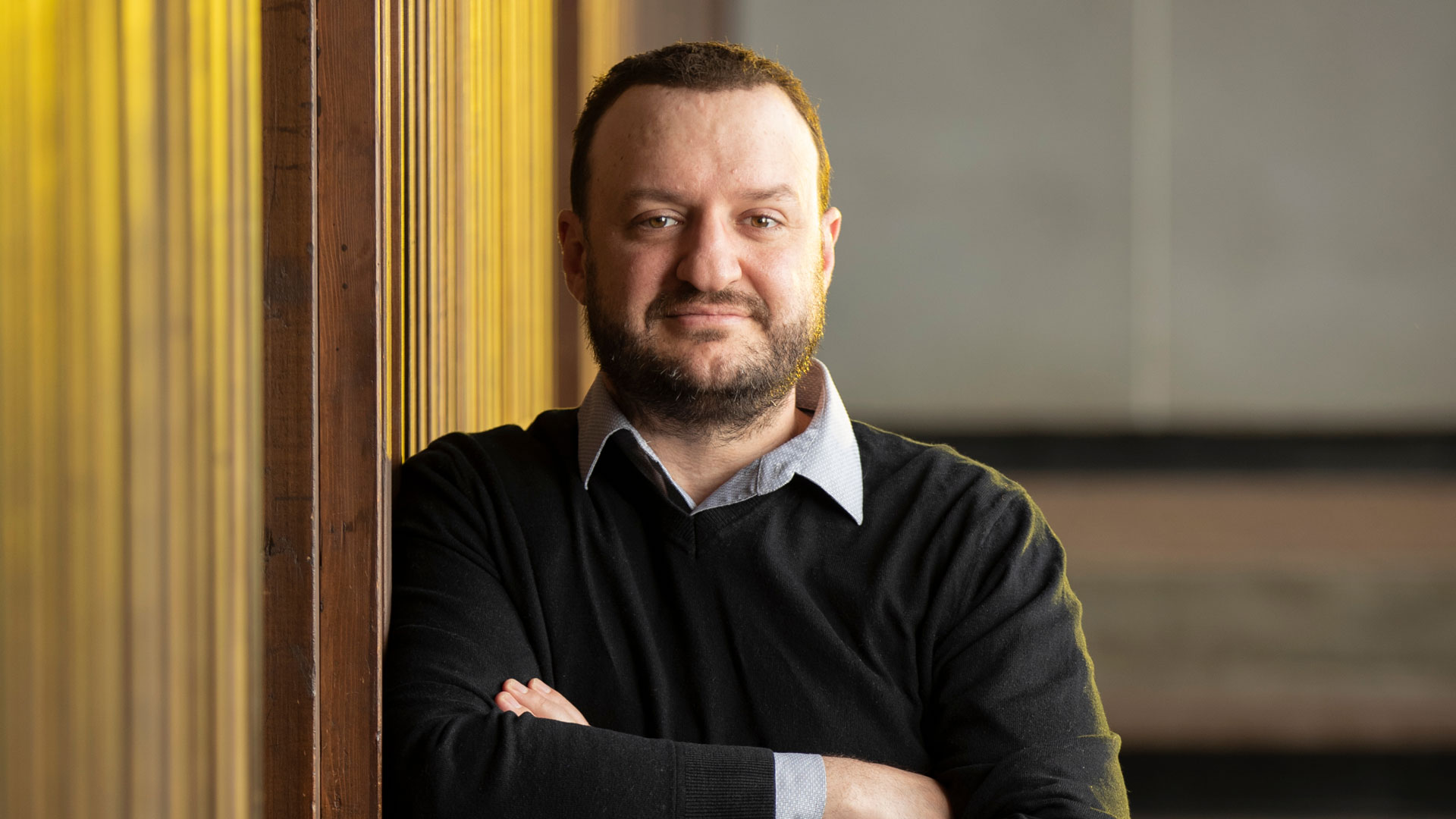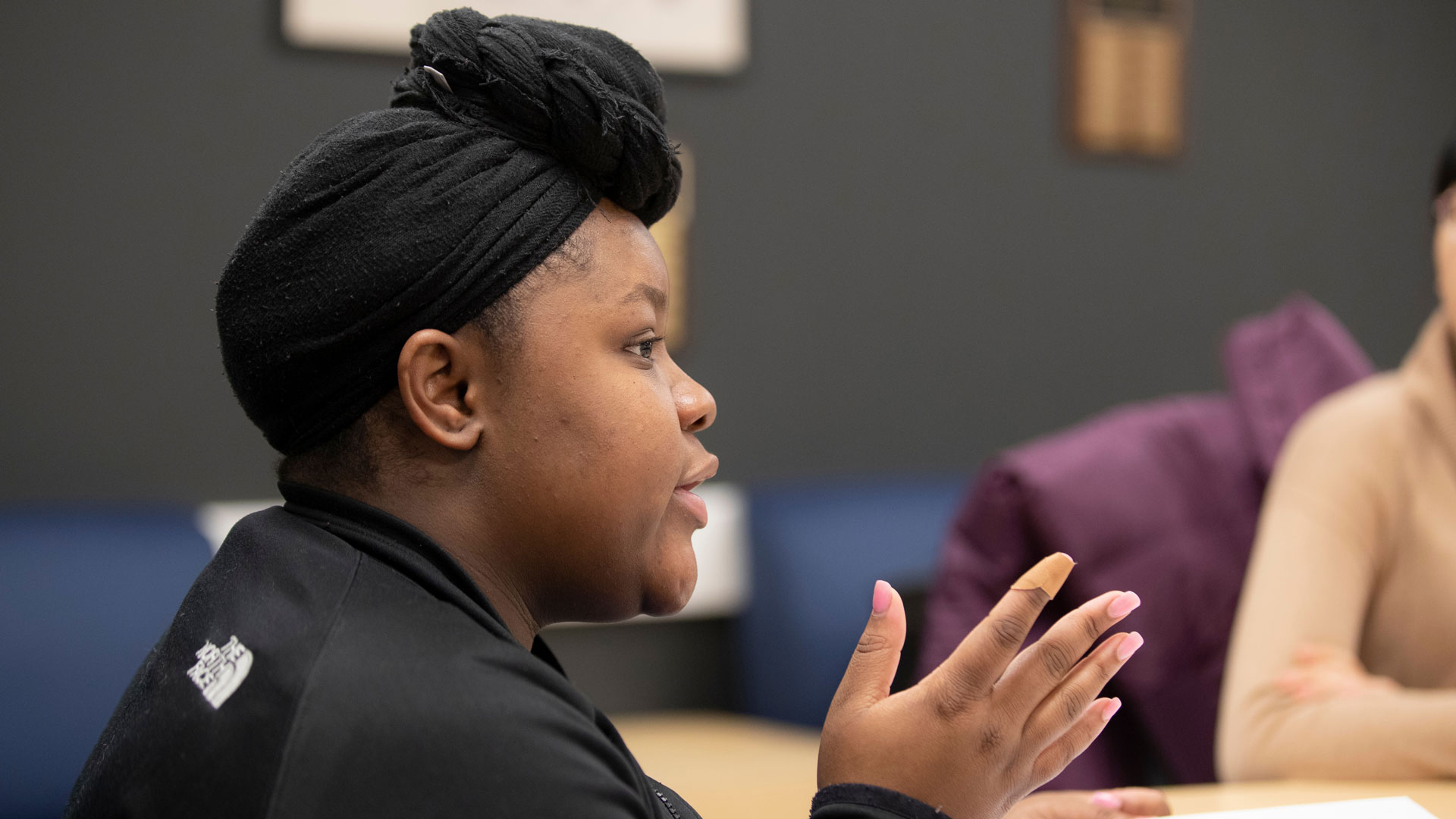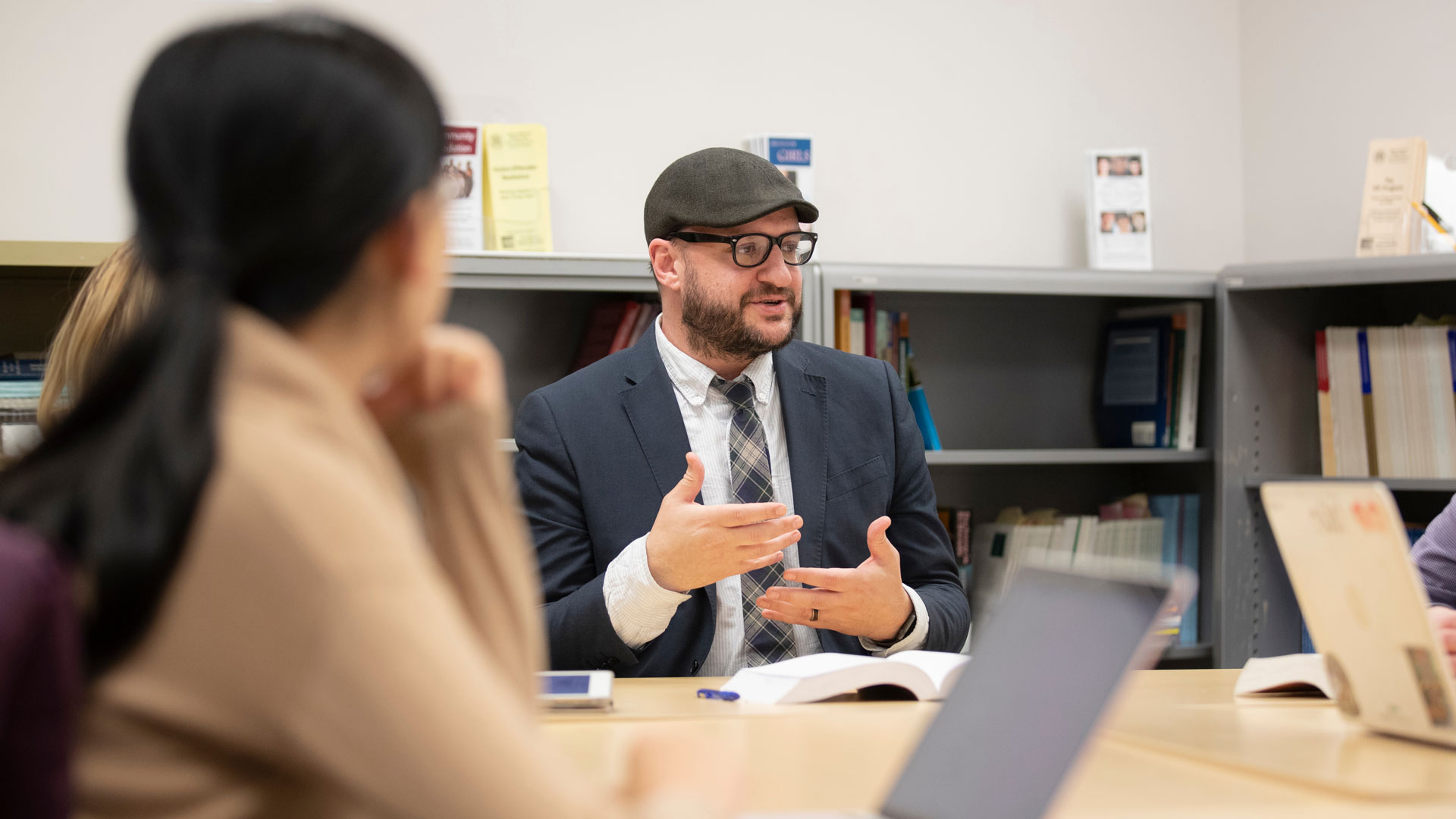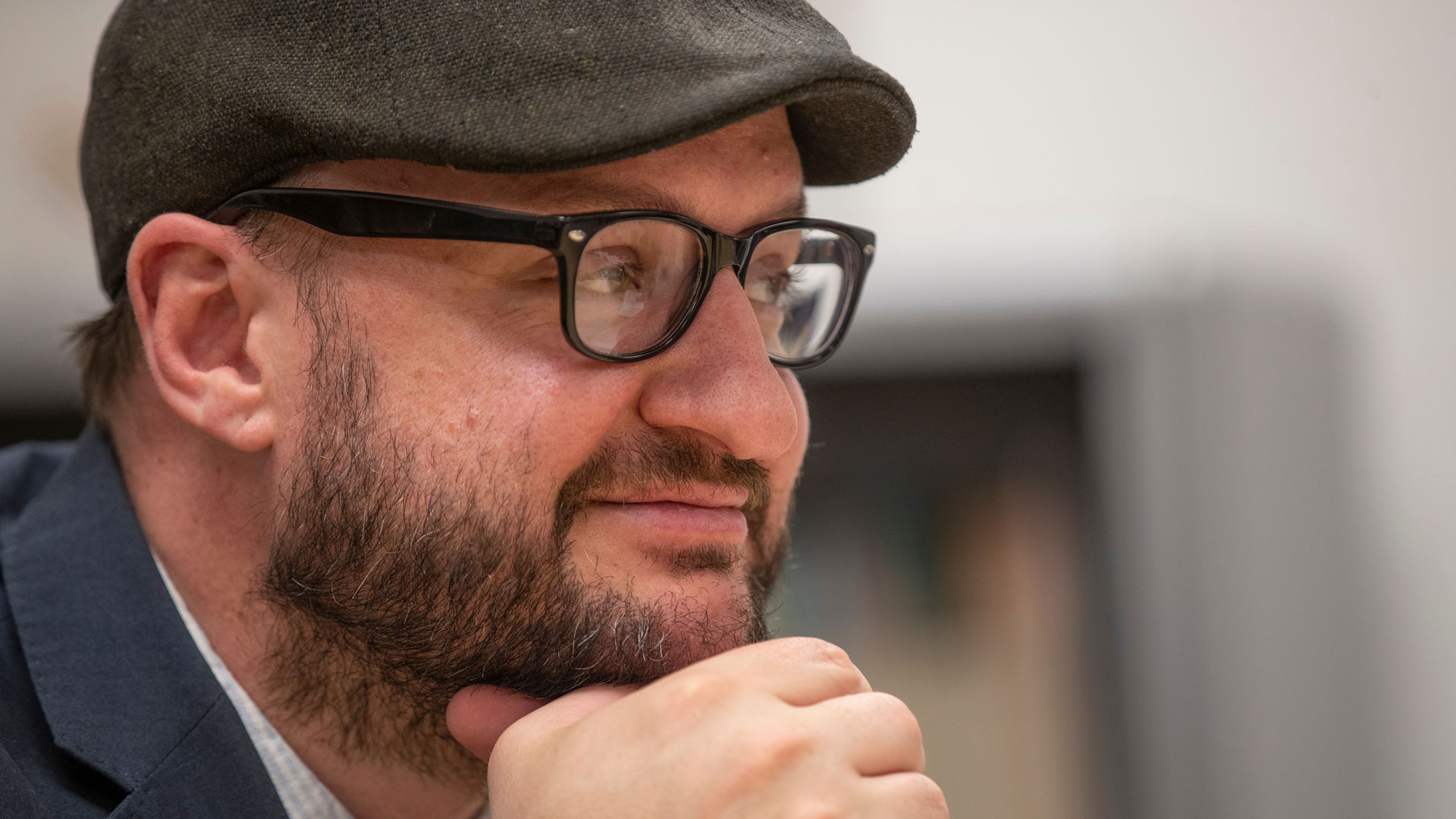
Making space for everyone
It is easy to forget that everyone has a different life experience.
So, what happens when cultures collide on college campuses? How are different life experiences blended or rejected? How can universities accommodate and appreciate everyone?
These questions drive Dr. Jake Simmons’ work. He researches the experiences of students of color on college campuses. His goal is to improve diversity and inclusion programs.
“It’s important to create safe spaces to share experiences,” Simmons said. “It’s important to students and to the fabric of a university.”
As the graduate studies director in the communication department, he uses his research to step into the shoes of others.
“Diversity and inclusion programs can be most effective when they are constructed through a relational partnership.”
It began in 2013
Simmons studied Black students’ experiences in predominantly white institutions, also known as PWIs. He researched through a relational dialectics lens.

Ashleigh Bobo talks during Dr. Jake Simmons’ auto-ethnography class. Photo by Jesse Scheve
Relational dialectics, to put it simply, is studying the competing tensions involved when we speak about an issue.
“We are always speaking twice,” Simmons said. It’s not just what you say, it’s how you say it.
He and his collaborators conducted individual interviews and focus groups. In total, 67 African American students answered questions about their lives at PWIs.
The students felt conflicted. They wanted to participate in their own culture. To gain acceptance, though, the students felt they had to take part in dominant traditions.
“I always believe there is an amazing social justice fight.”
The study received national attention in prominent news outlets, like Inside Higher Education and The Huffington Post.
“It was surprising that it became national news,” Simmons said. To him, it seemed obvious.
What are institutions doing wrong?
According to Simmons, institutions make one primary mistake when they develop diversity and inclusion programs. In too many cases, student experiences are not considered.

Dr. Jake Simmons advises more than 60 graduate students in addition to his teaching load at Missouri State. Photo by Jesse Scheve
“Students of color need to be offered the opportunity to tell their institutions what they need. Administration needs to give them the space to do so,” he said. “This might not sound novel, but it’s very rare that it ever actually happens.”
If these programs are woven into the fabric of universities, Simmons believes institutions will retain more students. This is especially true with international students.
“You constantly have to ask the people you are serving what they need and figure out better ways to give that to them,” Simmons said.
Bringing inclusion home
At Missouri State, Simmons advises more than 60 graduate students and brings new information into the classroom.
“I think Missouri State is a model institution in regard to student inclusion, but there is always work to be done.”
He collaborates with Dr. Shawn Wahl, dean of the College of Arts and Letters. Together, they wrote a new textbook for the intercultural communication curriculum. They aim to improve students’ cultural competence at MSU and beyond.
“Our work together, on both journal articles as well as a book focused on intercultural communication, has made me a better person,” Wahl said. “It is an ideal situation to work with highly competent people who also exemplify kindness, humility and professionalism. Jake does all of it.”
It’s personal
Simmons’ passion for his work has developed outside of the classroom as well.
His four children are multicultural and multi-ethnic. This turns his work into a passion project out of love and protection for his kids.

Along with minority student experiences, Dr. Jake Simmons also studies posthumanities – or what it means to be human in a world obsessed with technology. Photo by Jesse Scheve
“I want to create a better future for them,” he said.
For everyone else, Simmons sees a future where we are more understanding and more accepting of each other.
That world starts with you.
“Trust yourself, your voice and your cultural voice,” Simmons said. “It matters to change institutions and the classroom. It matters in the world.”
- Story by Lauren Stockam
- Photos by Jesse Scheve

